Water Purification Solutions for the Medical Industry
The medical industry is one of the sectors with the highest hygiene and purity requirements. The quality of water used in processes such as the production of medical devices, laboratory testing, sterilization procedures, and drug preparation is critical for product safety and patient health. Purified water, water for injection (WFI), and ultra-pure water have become essential requirements for various applications in the medical sector.
Proper water purification systems provide the high-purity water needed by the medical sector, enhancing the efficiency of production processes while ensuring compliance with international health and quality standards. At the same time, they reduce operating costs by offering environmentally friendly and sustainable water management solutions.
Applications Specific to the Medical Industry

Purified Water for Medical Device Manufacturing
High-purity water is essential in the production of medical devices to ensure cleanliness and prevent contamination. Advanced purification systems meet stringent quality standards for this application.
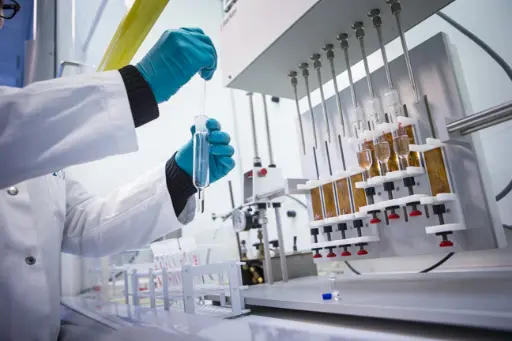
Laboratory Testing Water Systems
Laboratories require ultra-pure water for accurate and reliable test results. Water purification systems eliminate impurities that could interfere with testing protocols.

Sterilization and Disinfection Water Treatment
Steam sterilization and disinfection processes demand water free from minerals and contaminants to ensure the effectiveness of sterilization procedures and to protect equipment.
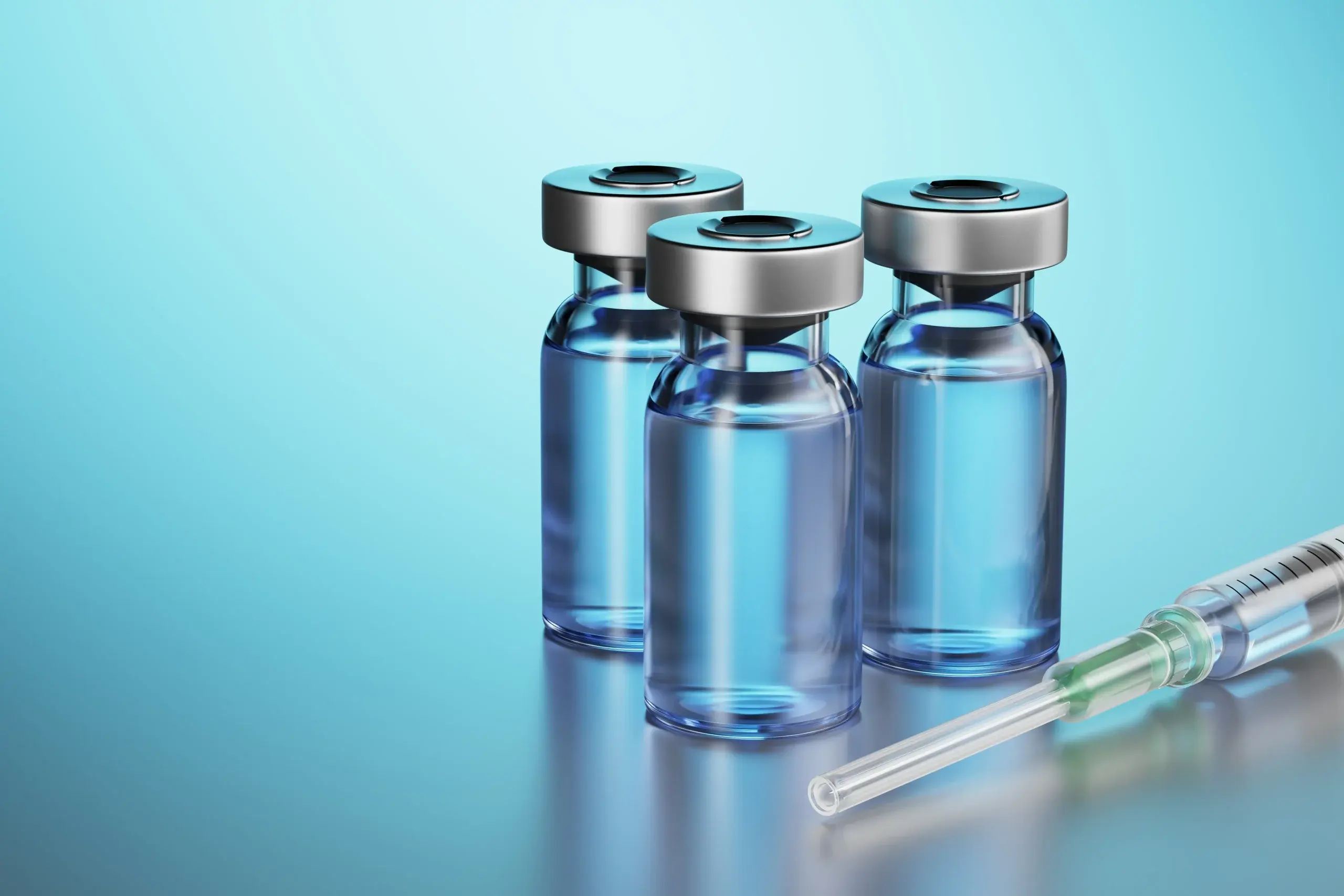
Water for Injection (WFI)
Water for Injection (WFI) is required for drug preparation and other pharmaceutical applications. Specialized systems ensure compliance with international standards like USP and EP for WFI production.
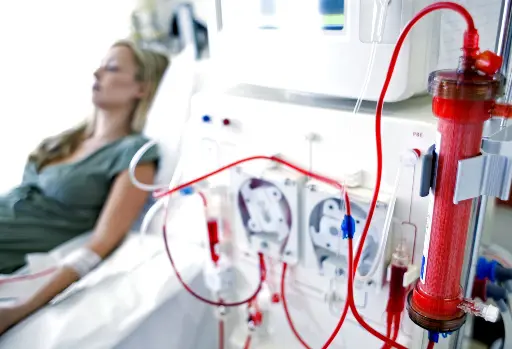
Hemodialysis Water Treatment
Dialysis processes require ultra-pure water to remove toxins and waste from patients’ blood. Water treatment systems specifically designed for hemodialysis ensure patient safety.
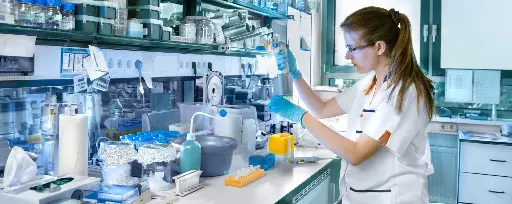
Pharmaceutical Process Water Purification
Pharmaceutical manufacturing processes depend on purified water for drug formulation, cleaning, and other operations. Reverse osmosis and electrodeionization systems are commonly used for this purposes.

Ultra-Pure Water for Biotech Applications
Biotechnology processes, including cell culture and genetic research, demand water with extremely low levels of contaminants. Ultra-pure water systems meet these stringent requirements.

Endoscope Reprocessing Water Systems
Endoscope cleaning and disinfection require high-purity water to prevent biofilm formation and ensure proper hygiene. Purification systems provide the necessary water quality.
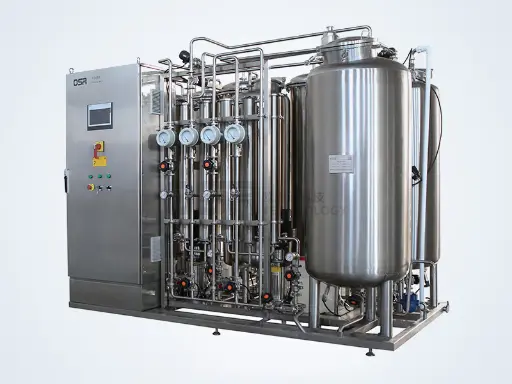
Autoclave Feedwater Treatment
Autoclaves used in sterilization need high-quality feedwater to prevent scaling and ensure efficient operation. Purification systems optimize water quality for this purpose.

Contaminant-Free Cleaning Water
Cleaning processes for surgical instruments and other medical equipment require contaminant-free water to ensure proper sanitation and extend equipment lifespan.

Water for Radiopharmaceutical Production
Radiopharmaceuticals require ultra-pure water for synthesis and preparation, ensuring product stability and patient safety.

Wastewater Treatment in Medical Facilities
Medical facilities generate wastewater containing biological and chemical contaminants. Specialized treatment systems neutralize and safely dispose of these wastes.
About Medical Water Purification Systems
Medical water purification systems play a pivotal role in ensuring patient safety, meeting strict regulatory standards, and optimizing operational efficiency across various healthcare settings. From medical device manufacturing to laboratory analysis and from sterilization procedures to pharmaceutical preparations, the demand for water of exceptional quality cannot be underestimated. This extended overview will delve into the main features, purposes, and technical details surrounding medical water purification, while also touching on essential operational and maintenance procedures that help maintain system integrity and performance over time.
Understanding Medical Water Purification Systems
In the medical industry, the term “high-purity water” refers to water that meets specific chemical and microbial parameters. Whether used for rinsing surgical instruments, formulating intravenous solutions, or conducting sensitive laboratory tests, the purity of water can directly impact patient outcomes. Typical medical water classifications include Purified Water, Water for Injection (WFI), and Ultra-Pure Water. Each category adheres to stringent quality guidelines set by regulatory bodies like the United States Pharmacopeia (USP), the European Pharmacopoeia (Ph. Eur.), and various ISO standards.
Key drivers for adopting medical water purification systems:
- Infection Control: High-purity water significantly reduces the risk of bacterial and endotoxin contamination.
- Compliance: Meeting international regulations, such as FDA and GMP guidelines, is crucial for healthcare facilities.
- Patient Safety: Medical procedures often depend on water free from impurities that could otherwise cause complications or interfere with test results.
Core Purification Technologies
Several water treatment technologies are typically employed—often in combination—to achieve the required purity levels:
- Reverse Osmosis (RO): By forcing water through a semipermeable membrane, RO removes a significant portion of ions, microorganisms, and organic molecules. It forms the backbone of many healthcare water treatment setups.
- Distillation: Although energy-intensive, distillation remains one of the most effective methods for producing water free of pyrogens and bacteria, making it a favored option for generating Water for Injection.
- Ultraviolet (UV) Disinfection: UV light is used to inhibit bacterial growth and reduce total microbial counts. It is often implemented in combination with other technologies to maintain microbiological control.
- Deionization (DI) or Ion Exchange: By exchanging ions in the water for hydrogen and hydroxyl ions, DI systems further purify water beyond RO capabilities.
- Filtration (Microfiltration/Ultrafiltration): Filters with extremely fine pores remove endotoxins, microorganisms, and various particulates that can compromise water quality.
Primary Uses in the Medical Sector
- Medical Device Manufacturing: Sterile water or ultra-pure water is employed for final rinsing of medical devices to ensure no contaminants remain on surfaces.
- Laboratory Testing: Clinical and research labs require water devoid of impurities that might skew test results or compromise sample integrity.
- Sterilization Procedures: Autoclaves, washers, and disinfectors rely on high-quality water to achieve accurate and effective sterilization cycles.
- Pharmaceutical Preparations: From mixing solutions for injections to reconstituting medications, water purity is a non-negotiable factor in drug safety.
Operational Procedures and Best Practices
Implementing a medical water purification system effectively requires careful design and documentation. Facilities often rely on validated processes aligned with cGMP (current Good Manufacturing Practices) to maintain uniform water quality.
- System Design: Selecting the right configuration—whether a single-pass RO followed by deionization, or a more elaborate setup that includes distillation—depends on the end application and quality requirements.
- Monitoring & Control: Continuous monitoring of parameters such as conductivity, total organic carbon (TOC), and microbial load is indispensable for real-time quality assurance. Automated control panels are common in modern systems to facilitate immediate troubleshooting.
- Documentation: Keeping comprehensive logs of water quality tests, system maintenance, and calibration records is essential for regulatory compliance and for diagnosing any potential issues.
Maintenance Procedures
Routine upkeep ensures the longevity of medical water purification equipment and the consistency of water quality:
- Filter and Membrane Replacements: RO membranes and cartridge filters must be replaced at recommended intervals to prevent clogging and degradation in performance.
- Disinfection Protocols: Regular chemical or heat-based sanitization of the system piping and storage tanks helps mitigate biofilm formation.
- Performance Validation: Scheduled testing against set benchmarks (conductivity, bacteria levels, etc.) verifies the system’s efficacy.
- Preventive Inspections: Checking pumps, gauges, and valves for wear or malfunction can prevent unforeseen breakdowns and potential contamination risks.
Meeting Regulatory and Quality Standards
Compliance with guidelines from organizations such as the USP, FDA, ISO, and local health authorities is a core requirement for medical water purification. Each regulatory framework provides criteria for microbial levels, endotoxins, and chemical impurities. Facilities that implement best-in-class water management strategies often integrate advanced monitoring solutions to meet or exceed these standards.
Conclusion
A well-designed and properly maintained medical water purification system is vital for ensuring patient safety, supporting efficient clinical operations, and meeting rigorous regulatory requirements. By investing in technologies such as reverse osmosis, distillation, and UV disinfection—and by adhering to strict operational procedures—healthcare and pharmaceutical entities can guarantee the consistent production of high-purity water. In doing so, they not only uphold international quality standards but also protect the health and well-being of patients who rely on medical products and services every day.
By taking a comprehensive approach—focusing on everything from initial design to ongoing system validation—organizations can optimize their water purification processes for safety, compliance, and sustainability in the ever-evolving medical landscape.